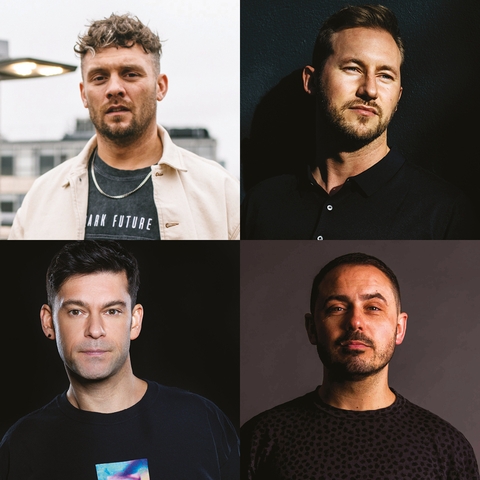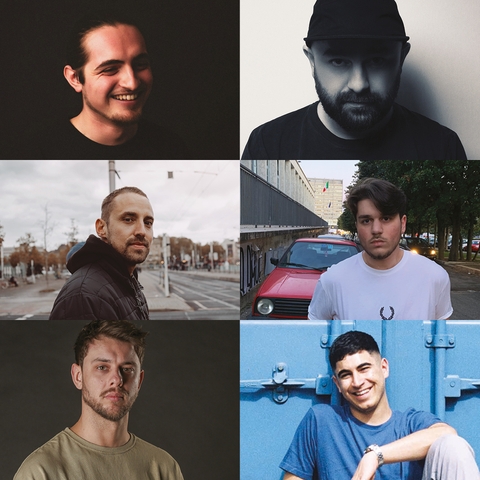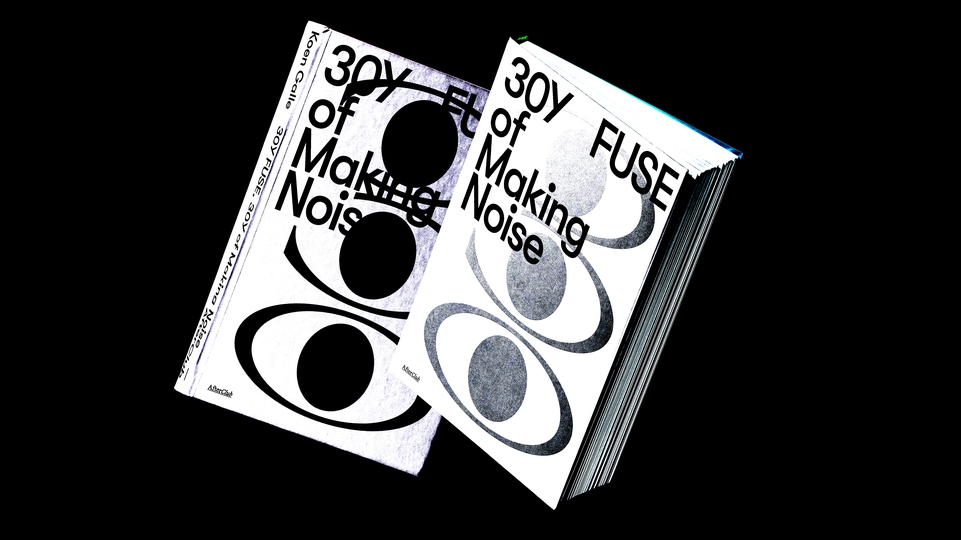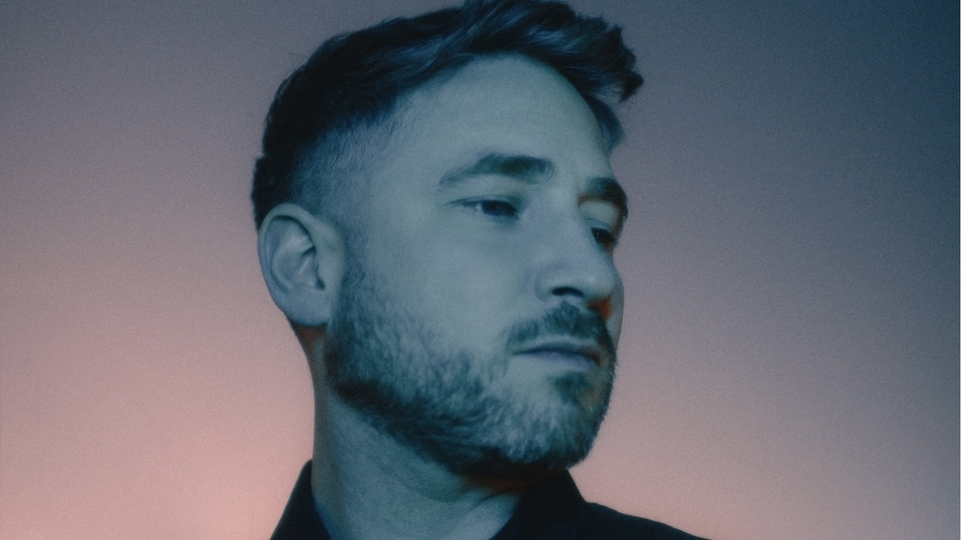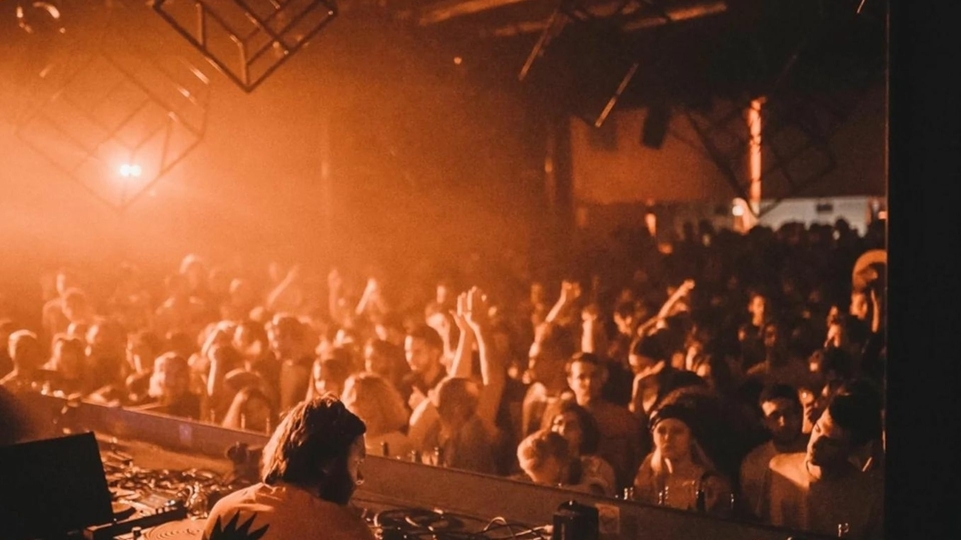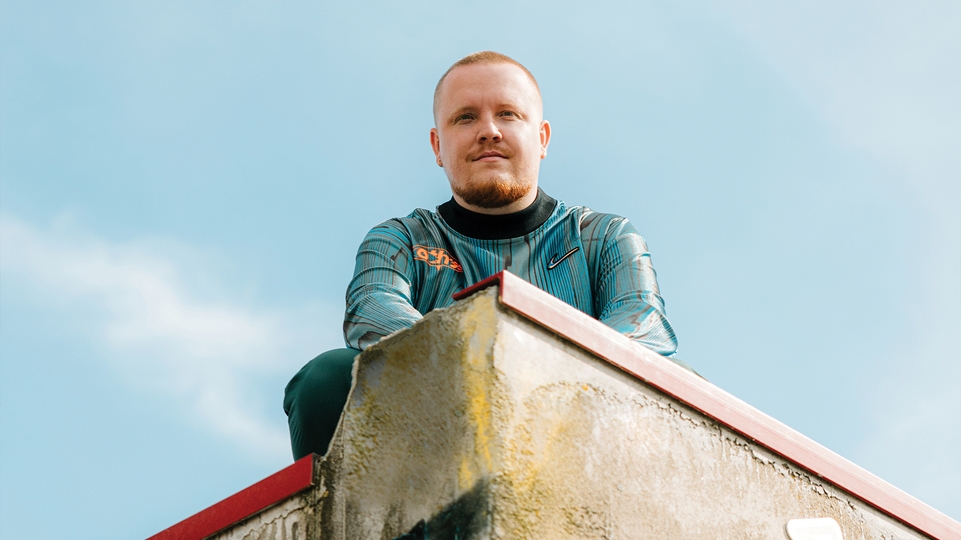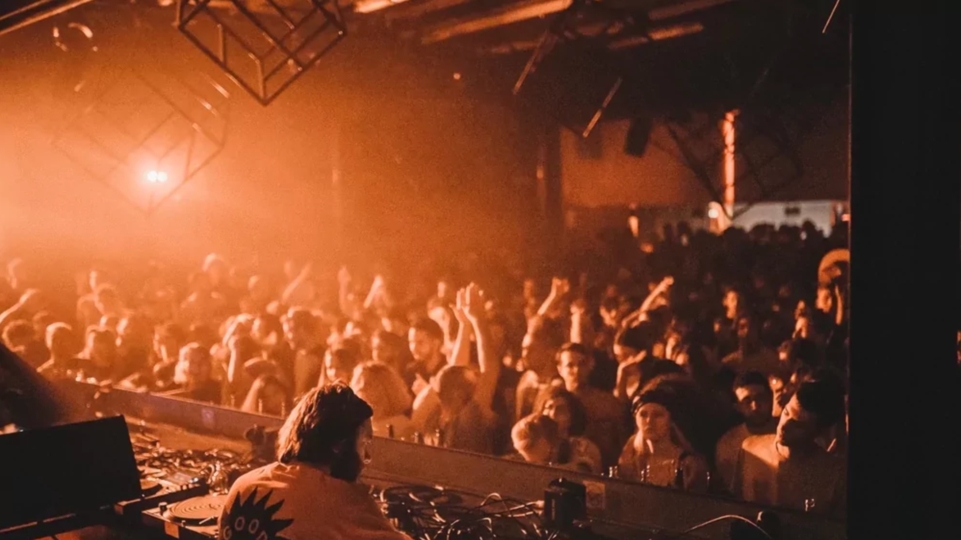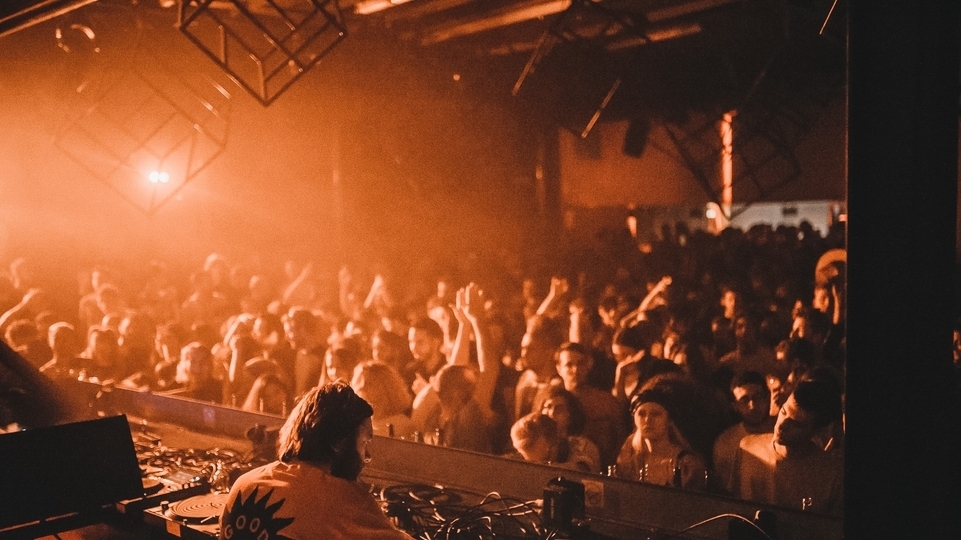Enzo Siragusa: Lighting the fuse
DJ, producer and party founder Enzo Siragusa has come a long way from his early days raving in warehouses, but he’s never forgotten his roots. The man behind the renowned East London party brand FUSE opens up about how he’s grown the event into an international, musically broad-minded collective and label — and how a hardcore and jungle past still surfaces in his music today
We’re in the booth of Room One at Fabric, London, and Enzo Siragusa is two hours into his eight-hour set. Under the swirling smoke and revolving lasers, the dancefloor and stage are packed tight with youthful energy — when we arrived, just after midnight, the sold-out party had a queue snaking around the block. Behind Enzo, the wooden racks are filled with records: there’s the cover of Bushwacka’s tech-house classic ‘Traffic Jam’, a nod to the lineage the FUSE party and label founder is following. He’s a modern day figurehead of UK house, whose influence is defining the tastes of a generation.
Then, a bassline drops — it’s a track sampling the vocal from Snap’s ‘The Power’. The rippling cheer that rises up cuts through Fabric’s mighty soundsystem, hands held aloft in approval.
Founded in late 2008, Sunday all-dayer FUSE was born at a time when East London’s party network ran tirelessly all weekend. Celebrating its 10th anniversary in 2018, the party has outlived the great extinction of this once-teeming ecosystem, spawning an eponymous label and a sister imprint, INFUSE, and growing into a global brand. This season, FUSE will host a series of parties in Ibiza’s DC-10.
Built up through regular local DJs, FUSE became more than a club, creating a community both on the dancefloor and behind the decks — and at the centre of it all is Enzo Siragusa. A first generation immigrant and self-identified “Cockney-Italian”, his passion for music, born in the heat of the UK rave scene, has remained an undimmed force, drawing together the early elements of FUSE’s success. Now, as he’s grown his reputation as a world-respected DJ in his own right, he’s laying foundations for the next 10 years. At first glance, it’s a giant leap from his upbringing. His parents ran a barbershop in Maidenhead, Berkshire, set up after they moved to England from their native Sicily in the aftermath of the Second World War. (They’ve since moved back to Sicily for their retirement.)
“The UK was rebuilding, so it was shipping people in,” explains Enzo. We’re in the cafe of the East London hotel he’s staying in this weekend. After living in London for almost a decade, he relocated to Manchester in 2018 with his wife, who is from the North, and their two kids.
Warm and smiling, he speaks with a distinct Estuary accent. It surprises Italians when he talks to them in the same Southern regional dialect as his parents. Life was understandably tentative for their generation. “You were kind of stuck within your community,” Enzo says of growing up playing with older cousins and always having family over at the house, which drew him into loud, party atmospheres. But born in the UK in 1978, for him and his peers, “We were kind of British, so you take on the culture more. You integrate.”
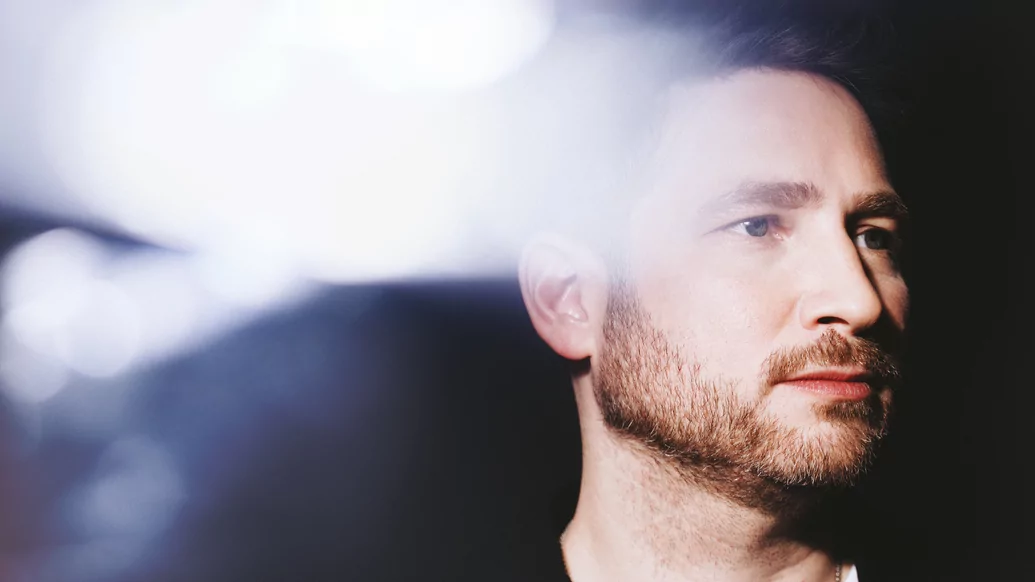

“It’s only in the last few years I’ve learned to trust in myself, to trust in my history and my journey that I know what to do. We need to put more energy into what we’re doing, to dig deep into the influences of where we’re from. It doesn’t always need to be that minimal, or deep and dubby”
Though FUSE was forged in late-’00s East London, its roots are in Enzo’s own formative experiences at the birth of UK rave culture. It was older friends and relatives who introduced him to the sounds and sensations of early ’90s hardcore, leading to starting to go to raves such as Dreamscape, Helter Skelter and World Dance in his early teens. One of the instigators of this was Tony Cannatella, Enzo’s cousin and now business partner in FUSE. Recalling the thrill of moments like walking into a disused hangar at Lydd Airport on the South Coast and seeing thousands of people dancing, they would drive around the country wherever events were happening.
It was a mind-expanding period, both for UK youth culture and Enzo personally, who’d found the perfect conduit for his integration and was unwittingly sowing the seeds for the next family business. “You went from going into the park and having a few cans of beer, maybe a spliff, to connecting with people on such a deep level,” he remembers, telling us he still gets goosebumps thinking about this era. “You came away so emotionally invigorated. That’s what raving did for me.”
He was a junglist first, obsessed with the rolling sound of LTJ Bukem’s Good Looking Records and buying music from local stores such as Maidenhead Record Centre and Hard Edge Records, all funded by a part-time job. But as his tastes began to incorporate house, he got his first gig aged 16 at Heroes Wine Bar, a venue next door to his dad’s shop, and the balance gradually shifted to his current trajectory.
“I was still buying jungle until about ’96,” he says, having got his collection out to play at Gottwood Festival after Doc Scott last summer. “The last record was probably Adam F’s ‘Aromatherapy’. I still loved the music, but the clubs had become a bit blokey.” The sound had changed too, he says, from being sample based to something heavier and more industrial.
Bobby & Steve’s Garage City at Bar Rumba, and parties at the Gardening Club, Leisure Lounge and Ministry Of Sound kept him out every weekend, but despite continuing to buy records and DJ, he succumbed to the life of a nine-to-five job after college, working in IT as he followed the lure of the Dot Com bubble. Desperately unhappy and still harbouring dreams of being a DJ, in 2003 he had what his family thought was a nervous breakdown. He quit his job, packed his car full of records, and headed off to do the season in Ibiza. “It kind of was [a breakdown],” Enzo chuckles, “but I was sure I could do something.”
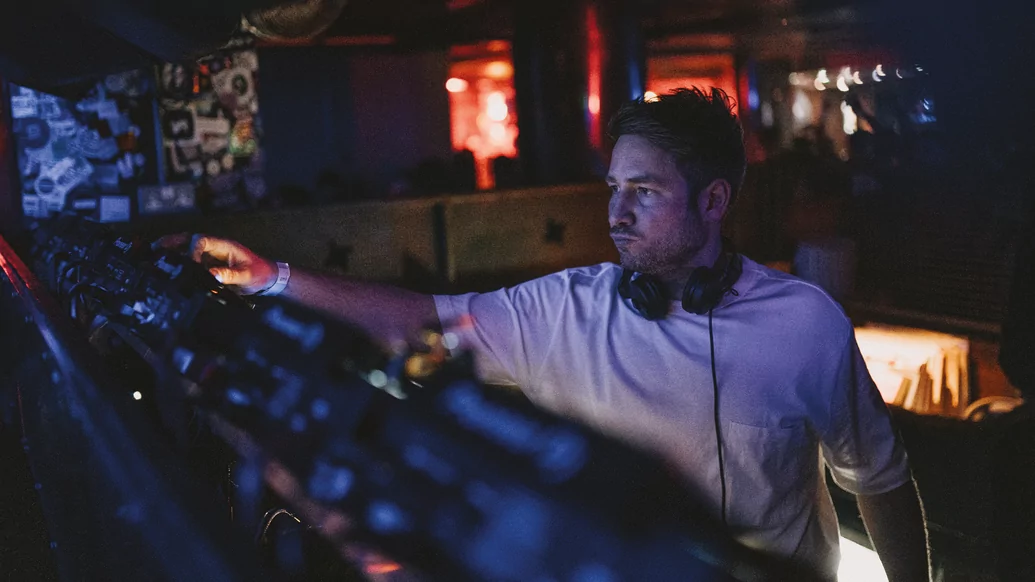

Securing a residency at the Cafe Mambo-owned bar next to Savannah in San Antonio, he started to develop a taste for extended sets, playing six to eight hours every night. There was also a moment of coming full circle when he covered for Bobby & Steve at El Divino, the duo who had inspired him discovering him in return. They’d come to the bar for dinner while he was playing, after finishing their warm-up shows at Savannah.
Perhaps even more important to Enzo were his Monday trips to DC-10. DJs like Clive Henry and Danny Tenaglia spun a deeper, darker sound to the one that he was playing. FUSE put on a party in DC-10 last summer with Cuttin’ Headz, but their series of events in 2020 will mark another full circle movement for Enzo.
“From being in that club as a raver in the early noughties, saying, ‘I want to play music like this and make music for this dancefloor’, to starting a party that had the essence of that, and now taking that party there... it’s mind-blowing.”
One of the marks of peak FUSE in its original home of 93 Feet East, he remembers, was when the crowd started doing DC-10 sit-downs on a regular Sunday afternoon. “When I came back I was pretty fucked,” he laughs, of these long sets: spanning everything from favourites Pink Floyd, who he’d play at sunset, to soul, disco, broken beat and, of course, house. He’d max out his credit card getting vinyl posted to the island. Considering the costs, and with little other option, he went back to working for his old boss. “Come back to the darkside, you gave it a good go, son,” he jokes on how it felt. “Then another four years went by.”
If his family thought he was mad the first time he’d followed his calling, “on paper it looked really dire” the second time round, he laughs again. With an even bigger mountain of debt, he got rid of his flash car, remortgaged his flat — on interest only, just before the financial crash happened — and rented it out, moving in with his auntie instead. “I just believed in it,” he says of the feeling that wouldn’t quit.
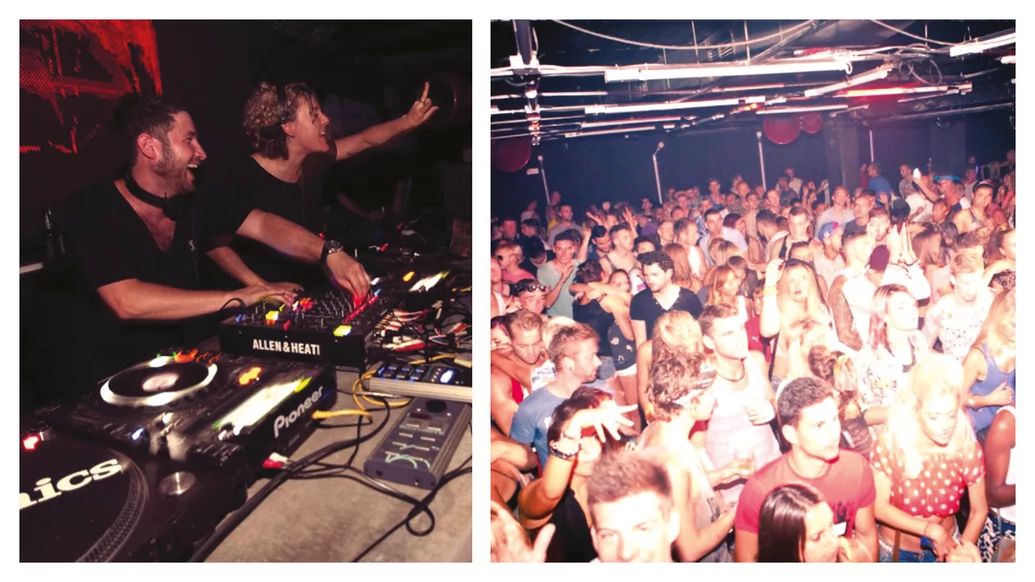

“It took some time for people to pick up on the early records I made, and I’d say some of the ones by Rich and Seb. We didn’t know about the industry or promo. We just put it out there and let it do its thing. It was important for us, because it was what we were playing at FUSE. Nothing else mattered. We didn’t think about trying to make a record that everyone played”
To give some idea of clubbing appetites in the late-’00s, FUSE was launched as an after-after-party for Circuit, another night Enzo had started at Shoreditch’s Home Bar (now The Book Club). Home Bar was “a little basement with a wicked soundsystem” where he’d got a residency playing from opening till close at 2am. He was often on his own, but was sometimes joined by guests like Seb Zito, who he met at Circuit, and who would become one of FUSE’s well-known regular DJs.
“People came for a drink and never thought they were going out,” says Enzo on what he puts down to the success of Circuit. “I’d be playing nice music to ease them in. Come the end, they’d be looking for another party.” First this led to starting an after-party called Circuit AM at Platinum strip club around the corner, which opened at 2am and closed at 10am. But when it turned out nobody wanted to go home then either, FUSE was launched as the next carry on.
Brick Lane’s 93 Feet East was already an iconic venue when FUSE arrived, says Enzo, because Secretsundaze had been there before. For some reason, however, it hadn’t found anything to fill this void. “Everyone was doing warehouse parties at that time, but it was really expensive and the quality wasn’t always great, you had things like filthy toilets.” With its opening hours of 10am to 10pm, adding another 12 hours to Enzo’s Saturday night DJ sessions, you can believe it when he says he used to party hard.
Circuit’s undoing was moving to a bigger venue. Once they had a later license and started booking guests, they had to raise the door price. It was a lesson learned for FUSE — they had to concentrate on their own, homespun charm. “All of a sudden, you’re booking guests to come play and they’re not getting the vibe,” Enzo says of the specific taste of the crowd he’d attracted in East London. FUSE started out with DJs drawn from that scene, such as Seb Zito and Rich NxT, and gradually took on others, like Archie Hamilton and Rossko, from the regular crowd who would be there on the floor each week.
“It was a special time in East London,” says Enzo on FUSE’s early days. He compares its raucous spirit to the hardcore scene, 40-something original ravers mixing with kids still in their teens. “People were going mad.” Jungle and drum & bass pioneer Grooverider would often pop down. Within a year, FUSE was also running a weekly Tuesday night at Delano Beach Club in Ibiza — starting a connection with the island that has taken in residencies at Amnesia, Space and the now-closed Sankeys, as well as Infuse parties at Underground.
Although Enzo's raving days were about diving into UK culture, FUSE also looped back around to his own beginnings. “I think the after-party scene from 2005 onwards was very much fuelled by Italians,” says Enzo. “Maybe it’s because they work in the night-time industries — as barmen, in restaurants, stuff like that. Their day to go out is Sunday.” There was always a strong Italian crowd at FUSE, and Enzo played a lot in Italy.
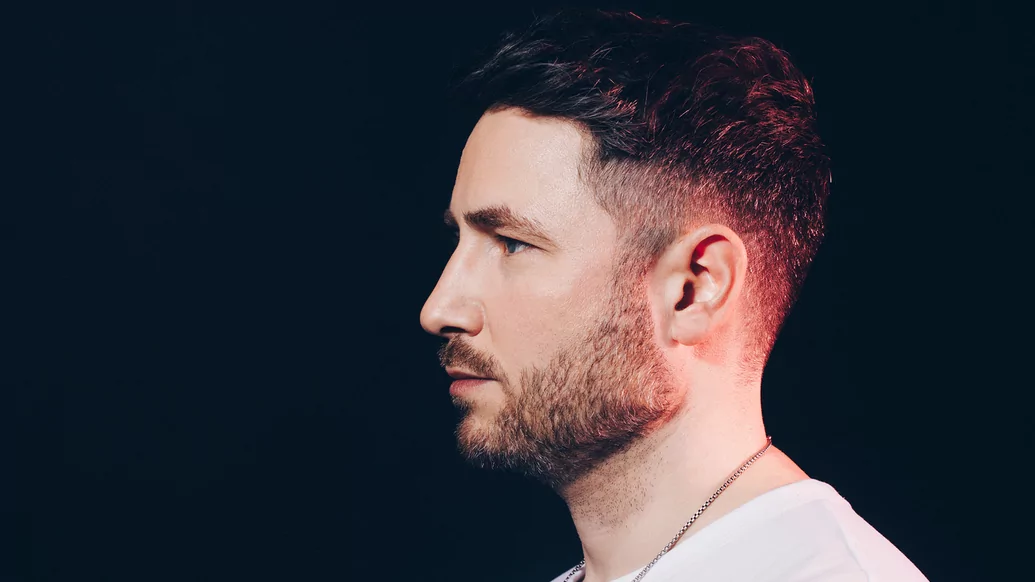

Within a few years, the party’s reputation was established and they started to have unannounced guests — albeit ones whose records would regularly be heard on the dancefloor, such as Nima Gorji and Marcus Fix. Rising German star tINI, who Enzo had become friends with (“It was the first time I clicked with someone outside of our crew musically,” he says of their debut back to back), got a train down to play after a gig in Leeds. “She said, ‘This is incredible, [Loco] Dice needs to play here’.” After the Desolat boss did, he signed Enzo to his DJ agency Artist Alife. Around 2011, the year that the label launched, Enzo’s DJ career began to take off outside of FUSE.
“It took some time for people to pick up on the early records I made, and I’d say some of the ones by Rich and Seb,” he admits. “We didn’t know about the industry or promo. We just put it out there and let it do its thing. It was important for us, because it was what we were playing at FUSE. Nothing else mattered. We didn’t think about trying to make a record that everyone played.”
Everything changed, however, in December 2012. Some friends told Enzo to turn on the news. He saw that 93 Feet East was the subject of a huge police raid that resulted in its high-profile closure — and rather less sensationalised re-opening. He’d been running a party every week for four years, and it had suddenly come to an abrupt end. “There was a huge void in my life,” he says. “Everyone said, ‘FUSE is finished now’, but I didn’t feel that. We’d already put on some other raves on Saturday nights, like at Hearn Street Car Park, and they’d been fucking phenomenal.”
Instead, the closure of 93 Feet East served to release both Enzo and FUSE to explore the wider world. Monthly parties at Village Underground provided a new canvas to experiment on. Then there were occasional nights, like at Fabric, where Enzo would stretch his wings and play all night. It also slowly set in motion a wider musical evolution, as Enzo became more and more successful personally.
By 2015, he was playing 120 gigs a year, which meant being on the road all the time and practically living in Ibiza. This changed in 2018, when he had his daughter and made the decision that, however much he enjoyed it, he needed to cut down on his gigs to be there as a parent. “Don’t get me wrong, it’s still every weekend,” he points out. There’s also the issue of getting older: the increased recovery time from sleepless nights, the lows that come after the highs of being on tour, and the self-doubt that can accompany it all. Having honed a specific, stripped-down sound for an East London crowd, he faced the pressure of turning up and wondering if his deeper sound would work — now, he was stepping into the shoes of the guest DJ, trying to feel out the vibe.
“It’s only in the last few years I’ve learned to trust in myself, to trust in my history and my journey that I know what to do,” he tells us. These experiences, in stepping outside his comfort zone, started a new phase in his career that has seen FUSE and INFUSE come into their own as labels.
Invigorated by venturing further afield, he advised the rest of the FUSE crew that “we need to put more energy into what we’re doing, to dig deep into the influences of where we’re from. It doesn’t always need to be that minimal, or deep and dubby.” He “really dug into [his] jungle roots”, a move that would define him as a producer and DJ. Check 2014’s Alexkid collaboration ‘Kilimanjaro 2’ or 2015’s ’Desire’ for deep, deadly Reese rollers, the latter also capturing some of the off-key atmospherics of jungle’s moodier roots. He got a Panorama Bar gig off the former, “after Dixon came up to me and said, ‘What the fuck is that?’” When it turned out it was one of Enzo’s own tunes, and that he also loved playing longer sets, he was booked for a five-hour opening for Innervisions.
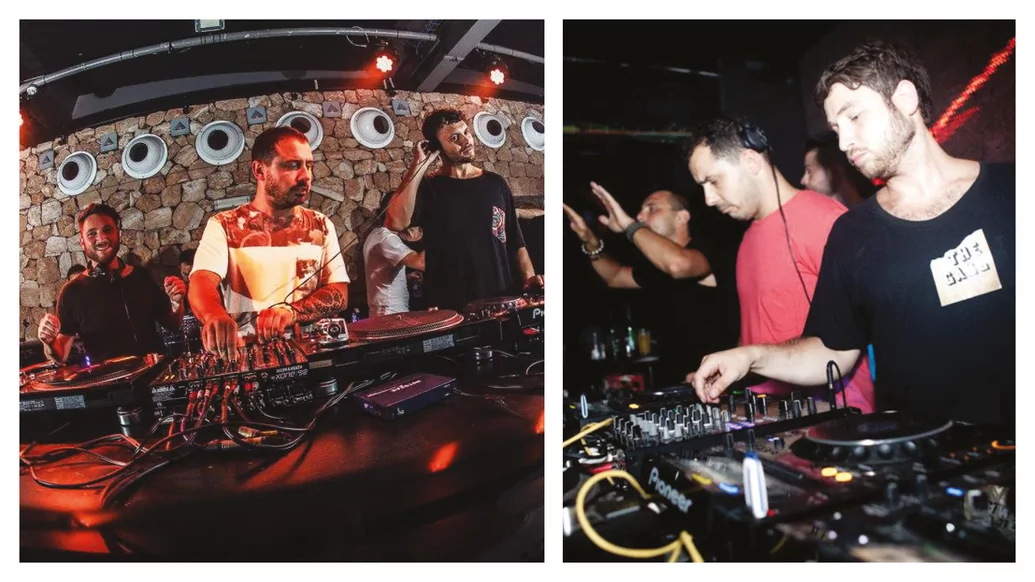

“There are no real FUSE residents as such it’s been five of us over the last few years at the forefront of what we’ve been doing. But everyone has been going in their own direction to a certain degree, and technically FUSE only happens a couple of times per year now”
Last year marked a double milestone for Enzo. He released two albums — ‘A Decade Of Rave’, featuring eight solo tracks, and ‘A Decade Of Rave Volume Two’, featuring seven collaborative tracks with Rich NxT, Seb Zito, Archie Hamilton and Rossko. These were followed up by his ‘The Lost Dubs’ EP in February, with four tracks that didn’t fit on the albums, including ‘Quest’, a subby tribute to the Andy C & Shimon jungle classic of the same name.
Reading between the lines, it sounds like this collection marks the end of a first chapter in FUSE’s history. Enzo’s shift in production style didn’t necessarily reflect the tastes of all FUSE’s roster, some of whom were more into the minimal-for-days aesthetic of Romania’s Sunwaves festival. “Come on guys, look where I’m playing,” he says, laughing at what happened during this period. “I need tunes because I’ve got 3,000 people in front of me. I need a straight up 909 hat. Some of our tracks didn’t even have a hat. You’d be lucky to get a shaker in there! I was always pushing a little bit more of a rolling sound.” This, he says, has happened in the last couple of years.
Despite what some may have assumed, he also says that, at FUSE, there “are no real residents as such. It’s been five of us over the last few years at the forefront of what we’ve been doing. But everyone has been going in their own direction to a certain degree, and technically FUSE only happens a couple of times a year now.” There are degrees of diversion — Archie Hamilton released his album on his own label, Moscow Records, and Seb Zito debuted on Hot Creations — but there’s still a close partnership between them all. The next album due out on the FUSE label is from Rich NxT, one of the core crew.
“We’re really excited about it,” says Enzo. “He’s always pushed the musicality of FUSE. He’s also in bands and he’s working with vocals, something we’ve usually shied away from. I can really see it crossing over.”
This growing up opens the door to the next generation of FUSE regulars and affiliates (see Future boxout). “What I look for is someone that brings something slightly different to the table in terms of sound, but still has that groove,” says Enzo. Some releases are due from graduates of the FUSE dancefloor, other artists in Europe, and beyond. All are providing tracks that keep Enzo’s DJ sets bubbling, drawing influences from the resurgent sound of UK tech-house, to classic house and garage swings. From his own studio, there’s even a joyously bouncy breakbeat track finished, the airy musicality of eternal-inspiration Good Looking Records reduced down to a set-friendly 132bpm.
Enzo has played at 93 Feet East twice since it reopened, both times at after-parties following FUSE’s birthday celebrations. “The vibe from back then just happened again,” he grins. He takes us to see the venue, which has been spruced up by a recent refurb that’s seen its original wood floors restored. “I can’t play in London every week anymore, I’m in a different stage in my life and as an artist,” he says of his current fortunes. Living in Manchester gives him some much-needed headspace, as well as valuable family support, particularly since none of his own family lives in London anymore.
Instead, INFUSE, which he calls “a platform for a deeper sound that I always associated with that club”, has made its home in the venue with a regular party carrying on FUSE’s legacy. This means showcasing artists who are “at that moment I was at 10 years ago,” he says, “except they’re light-years ahead of where I was, as I was just a shitbag raver. They’re making amazing music already. It’s now a platform for them.”
From DJing 24-hour sessions to becoming a mentor to up-and-coming artists, some not much older than when he discovered raving, Enzo’s kept redefining his relationship to the scene he fell in love with all those years ago. “When people say it’s not the same as it used to be, of course it’s not,” he bristles. “It’s 25 years on, there’s an industry around it. But the essence needs to remain. Some people say it’s just about going out and getting on it, but there can be more to it.”
Carrying the resonance of his own teenage experiences, that feeling of belonging and purpose, Enzo’s life has been dedicated to helping others experience their own epiphanies, both at FUSE and beyond. “Those emotions and feelings I had back then, I want people to still feel that,” he says earnestly. “If it can keep me going and engaged for 20-odd years, it can still do the same for other people,” he adds, pausing before giving a cheeky smile. “And it’ll keep me playing for a little while longer, because I love it.”
